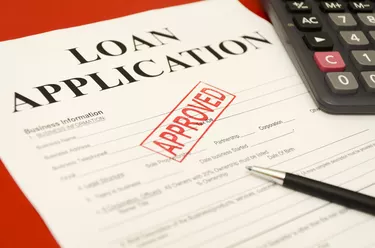
When you get married, nothing prevents you from applying for credit as an individual borrower. In many instances, you can establish credit accounts without the knowledge of your spouse. In other situations, however, you must obtain your spouse's consent before you apply for new credit even if your spouse's name doesn't appear on the loan.
Credit Scores
Video of the Day
When you borrow money, your debt levels and payment activity are reported to the three national credit bureaus: Equifax, Experian and TransUnion. If you and your spouse take out a loan as co-borrowers, a record of the loan appears on each of your credit reports. But while you may share some debts, your credit history has no impact on your spouse's credit report. If you apply for a loan by yourself, the lender underwrites the loan on the basis of your credit history and your income. Your husband's financial situation and credit score have no impact on the equation.
Video of the Day
Secured Loans
If you take out a secured loan, like a mortgage or a car loan, the lender has to place a lien on the collateral. A lender cannot place a lien without getting the property owner's consent. This means that your spouse must sign the mortgage contract as a property owner if you take out a loan against a property that you jointly own. In some states if you finance your primary home, your spouse must sign the mortgage as an owner even if your spouse's name does not appear on the property deed. In other states, any property that you bought after you were married technically belongs to you both even if only one of you actually bought it. In these situations, your spouse would have to sign the note to enable the lender to place the lien.
Community Property
States such as Arizona and California have community property laws, so any debts held solely in your name that you incur while married are regarded as joint debts. Therefore, a lender can hold your spouse responsible for repaying a debt even though you didn't tell your spouse when you took out the loan. Furthermore, your creditors have the option of pursuing your husband for repayment of the debt if you die before you repay the loan. In states without community property laws your spouse doesn't have to repay your debts.
Default
You can take out unsecured debts such as credit cards and personal loans without involving your spouse but if you default on the debt then your spouse may end up having to repay it. In many states, creditors can take you to court if you fail to settle your debts and a judge may allow the creditor to collect the debt by garnishing your bank account. Lenders can garnish joint accounts, so if you and your spouse share a bank account then your spouse's wages may end up being garnished to settle your debt.